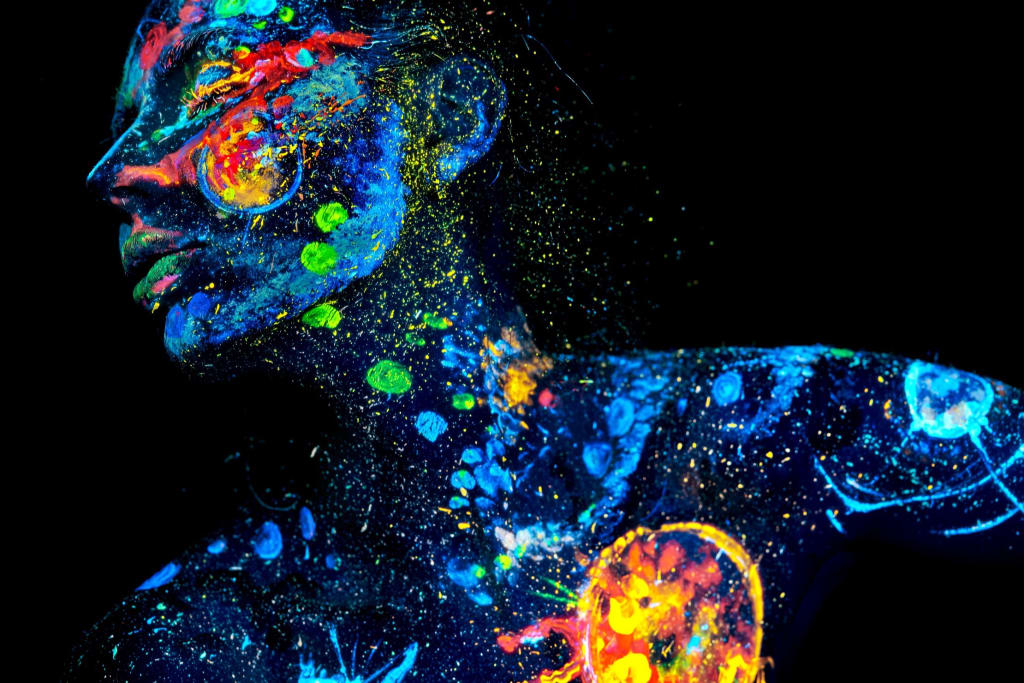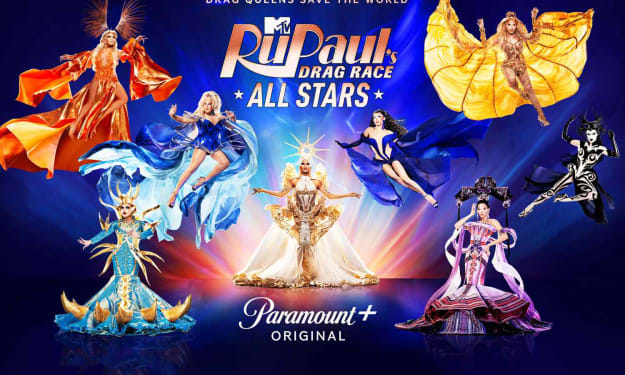Marvel Phase 4 Failures
Top 5 Disappointments & Missed Opportunities

For over 14 years, the Marvel Cinematic Universe (MCU) has been a shining example in Hollywood, an unprecedented achievement that remains unparalleled. It took lesser-known comic book characters like Iron Man, Thor, and Captain America and transformed them into household names. With 22 films released in three phases over a span of 11 years, the MCU reached its peak with "Avengers: Endgame," which grossed over $2.5 billion worldwide. The future seemed limitless for Disney and Marvel. But, as we delve into Phase Four, we find that even the mighty can stumble.
Welcome to the autopsy of Marvel Phase Four, where we dissect the failures that have plagued the franchise. In this countdown, we'll explore the top five disappointments of the MCU.
Let's begin with number 5: "Black Widow"
"Black Widow" marked the first Marvel film in Phase Four, featuring a deceased character. Disney, apparently oblivious to the lessons learned from "Solo," decided to proceed with this project. Though the film aimed for inclusivity, it unfortunately character-assassinated the first female Marvel OG in her own story.
The film's writer, Jack Schaefer, admitted to not being a comic reader and relied heavily on producer Mary Livanos to guide her through the source material. This lack of understanding is evident in the final product.
"Black Widow" had the potential to be a thrilling, rated-R spy thriller, exploring the character's backstory and the events referenced in previous Avengers films, such as the red ledger and the enigmatic Budapest mission. However, what we got instead was a convoluted narrative intertwined with the #MeToo and Time's Up movements. The dialogue even delved into menstruation, which seemed out of place and forced.
Moreover, the film twisted Disney and Marvel's morality, depicting the protagonists as responsible for the massacre of guards, inmates, and dogs in order to save an estranged father. The villains, General Drakov and Taskmaster, failed to leave a lasting impact, with the latter's reveal being lackluster. The true villain, Melina Vostokoff, stole the spotlight, but the film ultimately left the Black Widows' accomplishments overshadowed.
"Black Widow" suffered at the box office, as it was released simultaneously in theaters and on Disney+. The resulting poor performance led to Scarlett Johansson suing Disney. Unfortunately, this film's failure foreshadowed the troubles yet to come.
Moving on to number 4: "Loki"
At its release, Kevin Feige claimed that "Loki" would have the most significant impact on the MCU, and he wasn't exaggerating. However, the impact came in the form of damage inflicted on the franchise within a single series.
The show wasted no time in emasculating Loki, a character supposed to be a variant of the one from the first Avengers film. It introduced new characters like the body-positive time cop, Lady Sif's return, and the token subservient male, Mobius. The series heavily relied on girl boss rhetoric, exemplified by Ravana Renslayer. Even the reveal of Loki's bisexuality felt forced, as the show focused more on a female variant of Loki, sidelining the original character.
"Loki" continued the trend of Disney and Marvel's twisted morality, excusing the female protagonist's actions, which resulted in the deaths of countless variants, by labeling her as misunderstood. The show eliminated the concept of free will and undermined the significance of the Infinity Stones. It wasn't about Loki but rather a convoluted exploration of predetermined events and the reign of a king who ultimately gets killed.
Next up, we have number three: "She-Hulk"
This show could have been the perfect response to criticisms of the MCU, where female characters are often overshadowed or sidelined. Unfortunately, "She-Hulk" fell short of expectations.
The show focused heavily on Jennifer Walters' legal career rather than her superhero alter ego, She-Hulk. While exploring the character's professional life could have been interesting, it became the central theme of the series, leaving little room for the superhero action that fans were hoping for. Additionally, the courtroom drama aspects felt lackluster and failed to capture the audience's attention.
Furthermore, the show suffered from inconsistent tone and lackluster writing. It attempted to balance humor and drama but struggled to find a cohesive balance, resulting in tonal shifts that felt jarring and unnatural. The jokes often fell flat, and the overall pacing of the series felt off.
Another significant disappointment was the portrayal of She-Hulk herself. Instead of a powerful and imposing figure, the character was reduced to a watered-down version of her comic book counterpart. The CGI used to bring She-Hulk to life was underwhelming, lacking the visual impact that fans were expecting.
Additionally, the show missed the mark in terms of exploring the deeper themes and complexities of Jennifer Walters' character. It failed to delve into her struggles with her Hulk transformation and the internal conflicts that arise from having both her human and superhero identities.
Moving on to number two: "Eternals"
"Eternals" was highly anticipated as a groundbreaking addition to the MCU, introducing a new team of powerful beings with cosmic origins. However, the film failed to deliver on its promise.
One of the main issues with "Eternals" was its bloated and overcrowded cast. With so many characters to introduce and develop, the film struggled to give each character enough screen time and depth. As a result, many of the Eternals felt underdeveloped and lacked compelling arcs.
The pacing of the film was also problematic. It felt slow and dragged in several parts, making it challenging to stay engaged. The story meandered between different time periods and failed to establish a clear sense of urgency or a cohesive narrative.
Furthermore, the film suffered from inconsistent and uninspired action sequences. Given the Eternals' immense powers, the action should have been a highlight of the film. However, the fight scenes lacked creativity and failed to leave a lasting impact.
Lastly, the film's attempts at exploring larger themes and ideas fell flat. It touched on concepts such as the purpose of the Eternals and their role in shaping human history, but these ideas were not fully realized or explored in a meaningful way.
Finally, we arrive at the number one disappointment of Marvel Phase Four: "Spider-Man: No Way Home"
This film, which should have been a culmination of the beloved Spider-Man trilogy, ended up being a convoluted mess.
While the film had its moments of nostalgia and fan service, it relied heavily on the inclusion of characters from previous Spider-Man iterations to carry the story. This overshadowed Tom Holland's Spider-Man and undermined the development of his character. Instead of focusing on Spider-Man's growth and personal journey, the film became more about revisiting the past and tying up loose ends.
Moreover, the plot became overly complicated with the introduction of multiple villains and parallel universes. The pacing suffered as a result, and the film struggled to balance the various storylines and character arcs. It often felt like fan service took precedence over a coherent and compelling narrative.
Additionally, the film's resolution felt rushed and unsatisfying. The stakes were high, but the resolution lacked emotional impact and failed to provide a meaningful conclusion to the storylines and character arcs.
In conclusion, Marvel Phase Four has been marked by several disappointments. "Black Widow," "Loki," "She-Hulk," "Eternals," and "Spider-Man: No Way Home" all fell short of expectations for various reasons. However, it's important to note that these are subjective opinions, and others may have enjoyed these entries in the MCU.
Of course, opinions on these Marvel Phase Four entries may vary, and some viewers may have enjoyed them despite the criticisms. It's worth mentioning that the Marvel Cinematic Universe has a vast and diverse fan base, and different people have different preferences and expectations.
While these particular entries may have disappointed some fans, it's important to remember that the MCU has a track record of delivering entertaining and successful films and TV shows. Marvel Studios has a history of learning from their mistakes and making adjustments based on feedback.
Moving forward, it's likely that Marvel will continue to experiment with new storytelling approaches and introduce fresh characters and concepts. Not every venture will resonate with every viewer, but the MCU has shown resilience in adapting and evolving to meet audience expectations.
It's also worth noting that Marvel Phase Four is an ongoing phase, and there are many more projects on the horizon. As the MCU expands and introduces new stories and characters, there will undoubtedly be opportunities for exciting and satisfying experiences that resonate with fans.
Ultimately, the success of any film or TV show is subjective, and while some entries in Marvel Phase Four may have disappointed certain viewers, there are still many more chapters to come in the ever-expanding Marvel Cinematic Universe.
About the Creator
Father's Journey
My daughter's future, well-being, happiness are my driving forces. I've embarked on a mission to equip her for success in a rapidly changing world and to inspire fellow parents to raise digitally fluent children who surpass us in every way.






Comments
There are no comments for this story
Be the first to respond and start the conversation.